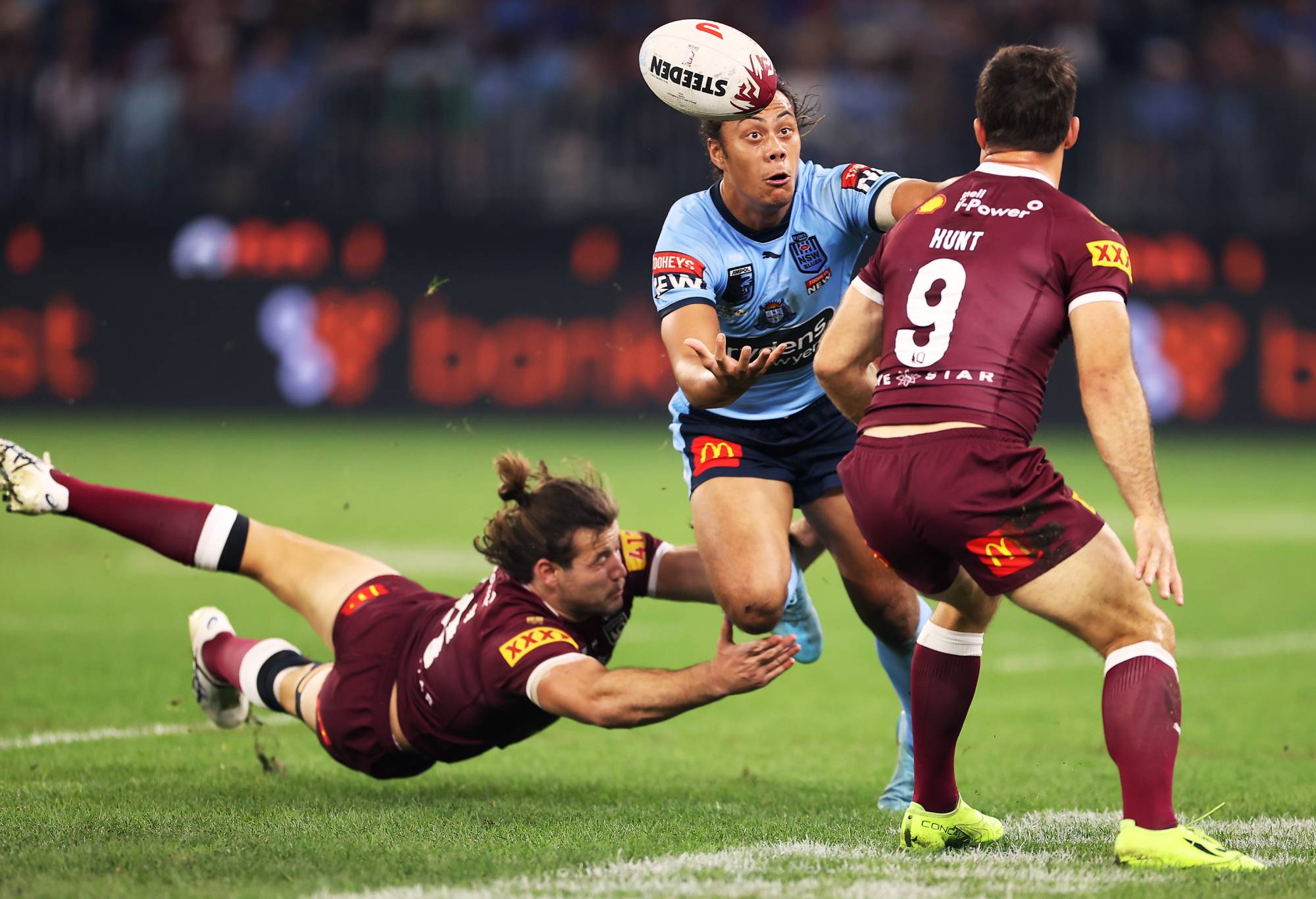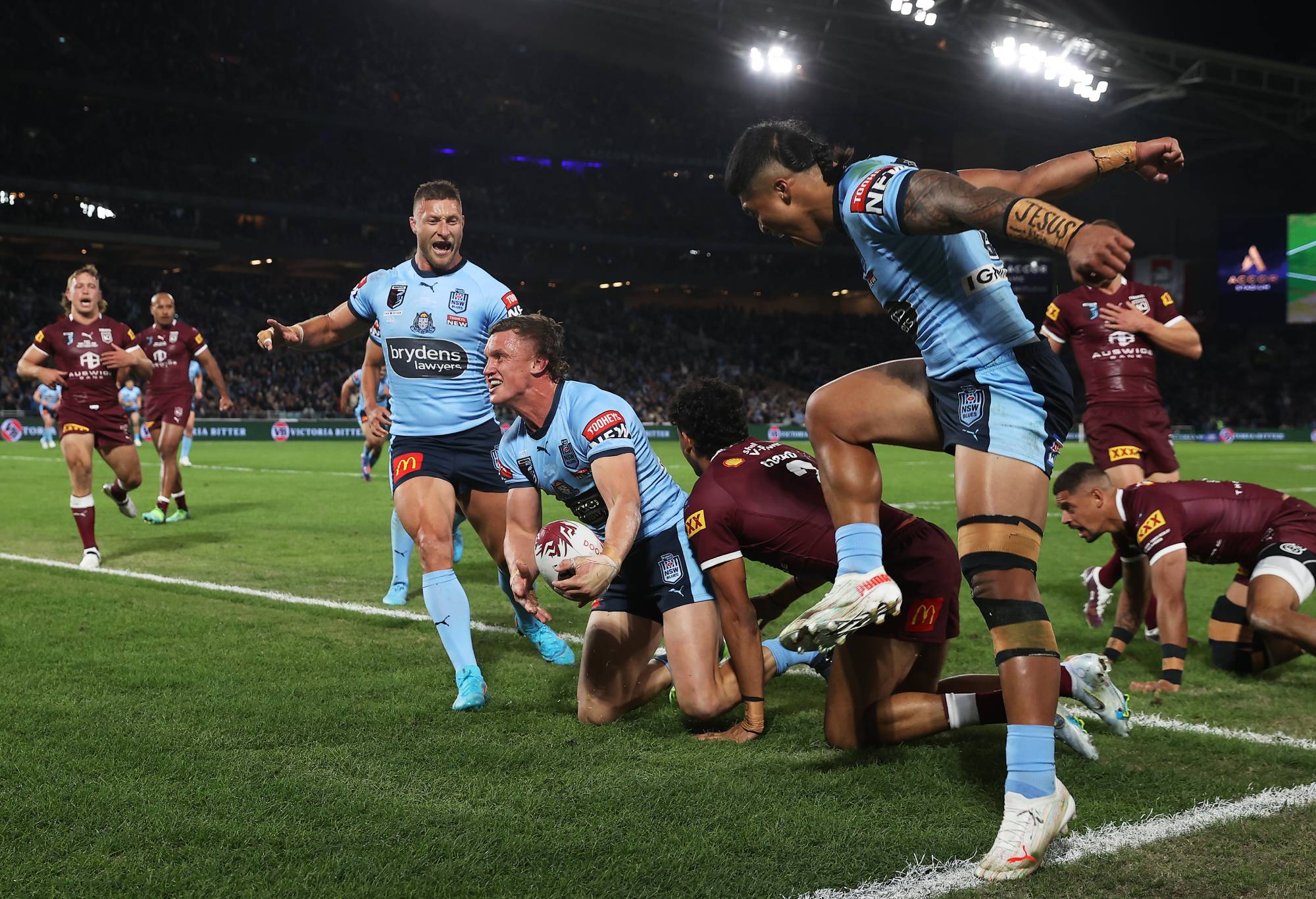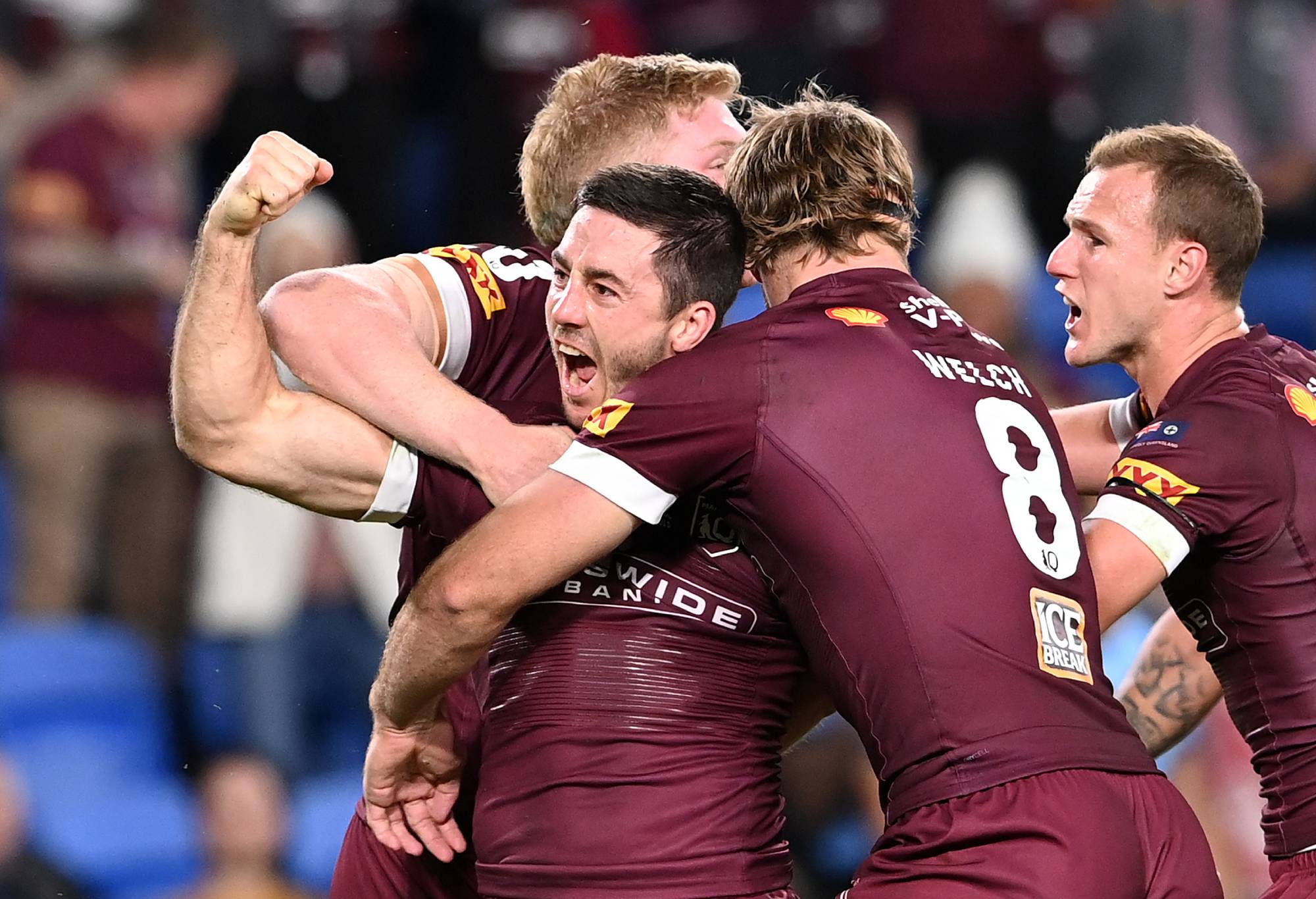Talking about tactics in Origin, as I have written on many occasions before, is a little bit of a waste of time.
Not because there aren’t any, but because the sample size is permanently too small to try and discern what coaches are doing in the long run. There is no long run.
Instead, we see a few general ploys – and I guess ploys are a type of tactic after all – that provide an insight into what the coaches think their relative strengths and weaknesses are, and what they think can give them a 1% advantage.
In Game 1, we saw the Penrith Blues take on the Queenslander Spirits, at least if you listen to the coaches.
Brad Fittler thought that the Panthers were great (they are) and most of his team were from there (they are) and thus they just had to turn up and play like Penrith to win (they didn’t). Oh dear.
Billy Slater, however, steadfastly refused to talk about anything as germane as tactics and said things about what it meant to be a Queenslander, which I found strange, because Origin would be quite boring if simply being from one of the participating states qualified you to win.
Then in Game 2, the Penrith Blues did alright, because they executed better, got a bit of early wind go their way, and their opponents learned that you do need some semblance of a plan, especially when things don’t go your way.
It’s funny, really: NSW did talk about tactics in Game 1, but the most effective tactic was Queensland’s umbrella defence, which they wouldn’t talk about.
Then in Game 2, NSW busted that with the simplest of kicks in behind for their opening try and thereafter, QLD never tried it again, allowing the Blues to play exactly as they wanted.

Jarome Luai at Optus Stadium. (Photo by Mark Kolbe/Getty Images)
Instead, they reverted to a crude delaying tactic in the rucks that annoyed the referee sufficiently for him to send someone off, with the resultant fatigue a major factor in a heavy defeat. This, combined with a slightly rattled team selection, does make picking Game 3 a little more difficult.
NSW are without Payne Haas and have seen his replacement, Jordan McClean, also drop out. Now, it looks like they’ll need to get bulk minutes out of Junior Paulo and Jacob Saifiti. That’s a problem.
The Maroons have gone for Limmy’s ‘don’t back doon, double doon’ approach to bad decisions by elevating Jeremiah Nanai to start in place of Felise Kaufusi, with Tom Gilbert coming onto the bench.
Nanai is totally different to Kaufusi, both in terms of tactics and personality. The purpose of Kaufusi is to be an ultra-reliable, aggressive, 80-minute player, a set-and-forget for the coach.
Nanai is flashy, raw, potentially great but currently highly unreliable, especially defensively. They have to hide him or hope that he stops missing tackles at the current rate that he is, which is about one every ten minutes in Origin.
The outside backs also present a major departure for NSW. They have three centres now, with Matt Burton undroppable after just one game, Jack Wighton back available (and should be undroppable after his first game) plus Stephen Crichton, the theoretical incumbent.
As it stands, Wighton is named at 18th man and Crichton to start, but if that doesn’t switch before kick off, then Fittler has made a big mistake.

(Photo by Mark Kolbe/Getty Images)
While it is a cliché that Origin is won in the forwards, the loss of Haas means that both are pretty equal: it’s in the outside backs and halves that the Blues can make the most of their advantage.
If this sounds familiar, it’s because it was exactly how Women’s Origin played out: both sides were equally matched through the middle but the better strike out wide carried the day for NSW.
The edge defence for the Maroons is a big issue that lines up directly against that potential Blues strength.
They thought their way out of it in Game 1 with excellent counter-pressing, but when that was overcome in Game 2, the likes of Dane Gagai, Nanai and Daly Cherry-Evans were ruthlessly exposed. Either they go back to Plan A – and watch for an early kick in behind – or they’ll have some serious tackling to do to stop the Blues out wide.
In this, Tom Dearden, deputising for the Covid casualty Cameron Munster, will be judged as much on how well he defends as anything else.
While he’s not a terrible tackler, he doesn’t yet have the huge attacking upside that keeps the likes of Cherry-Evans in the team when the defending falters.

(Photo by Bradley Kanaris/Getty Images)
Were it me doing the picking, I would have put Ben Hunt in for 80 minutes and found another hooker – Reed Mahoney, probably – to do the bench 14 role, but Dearden will play at least in some capacity.
If the Blues do go for a Burton-Wighton centre pairing, then their ability to run, kick and find a pass will be very, very hard for Billy Slater to combat. He must be hoping that Crichton gets a run.
On the other side of the ball, Queensland can halt the Blues through their transition and forward play. Corey Oates, in on the wing after Covid denied Murray Taulagi a second run, will be key to this.
He’s been the best for the Broncos this year at starting sets and, in concert with teammate Selwyn Cobbo on the other wing, can made inroads that allow the Maroons to roll forward.
If the ruck can generate momentum, then everything will flow from there, especially in how they get Kalyn Ponga involved.
It remains to be seen the order in which Hunt and Dearden play – and where and when Harry Grant comes in – but if Queensland opt to use Hunt in the halves with DCE, then they have two maestros out there, with excellent boots and passing skills, and will empower the fullback to play a purely strike role.
For that ruck to be won, Slater has to get his interchanges right like he did in Game 1, maximising returns from Pat Carrigan and improving his use of Nanai and Jai Arrow, while finding a place for Gilbert to be impactful.
As mentioned, my fear for Queensland is that Nanai can’t play 80 minutes in Origin without being a defensive issue, and there’s not enough rotation in there for the rest of them, especially if – as he has in recent weeks – Josh Papalii can’t play longer minutes.
Like I said above, it’s a cliché that the forwards will win this one. With both sides lacking that department through Covid, injuries and somewhat confusing selections *coughs* RCG *coughs*, that might not be as true as it has been in the past.
If it becomes about who scores more points…then we might see NSW’s backs break it open again. But then: only one team has Queenslanders, right?































































































